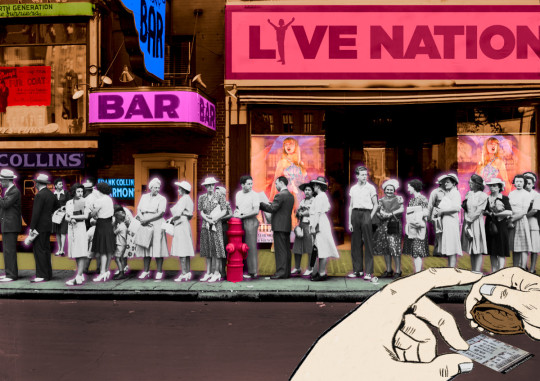#Financial Operations
Explore tagged Tumblr posts
Text
Transforming Financial Operations Through Advanced Technology
youtube
In our latest episode of Decimal Point Analytics Unplugged:
Discover how automation and advanced tools like Power BI and Databricks are transforming asset management.
Join Priyanka Adhainge and Sarafraz Aghariya as they explore how these innovations streamline data, boost compliance, and drive smarter decisions.
Watch now!
0 notes
Text
DBG technology india pvt ltd | Finanvo
Unlocking Financial Solutions with Finanvo: A Deep Dive into DBG Technology India Pvt Ltd
In today’s fast-paced digital economy, financial management has become more crucial than ever. Businesses of all sizes are constantly seeking innovative solutions to streamline their financial operations, enhance decision-making, and drive growth. This is where Finanvo, a flagship product of DBG Technology India Pvt Ltd, steps in as a game-changer.
What is Finanvo?
Finanvo is a comprehensive financial management software designed to cater to the diverse needs of businesses. From accounting to budgeting, and from invoicing to reporting, Finanvo offers an all-in-one solution that simplifies financial processes, making them more efficient and less time-consuming.
Key Features of Finanvo
User-Friendly Interface: Finanvo’s intuitive design ensures that users, regardless of their technical expertise, can navigate the software with ease. This user-centric approach minimizes the learning curve and allows teams to get started quickly.
Real-Time Financial Reporting: One of the standout features of Finanvo is its ability to generate real-time reports. Businesses can access up-to-date financial data, enabling them to make informed decisions swiftly.
Automated Invoicing and Payments: Say goodbye to manual invoicing! Finanvo automates the invoicing process, reducing errors and improving cash flow management. Businesses can set reminders for payments and track outstanding invoices effortlessly.
Why Choose DBG Technology India Pvt Ltd?
DBG Technology India Pvt Ltd is committed to innovation and excellence in technology solutions. With a team of experienced professionals, the company continuously seeks to improve its offerings based on user feedback and industry trends. Their dedication to customer support ensures that users receive assistance whenever they need it, making the transition to Finanvo seamless.
Success Stories
Many businesses across various sectors have already reaped the benefits of adopting Finanvo. From reducing time spent on financial tasks to improving accuracy in financial reporting, the impact has been significant. Companies have reported enhanced visibility into their financial health, allowing for better strategic planning and increased profitability.

0 notes
Text
Sandeep Bhattacharya Appointed New Vice President of Tata Steel
Sandeep Bhattacharya to take over as VP Financial Operations, Control, and Business Finance from August 1. Sandeep Bhattacharya has been appointed as the new Vice President of Tata Steel. Currently serving as the Chief Financial Operations and Business Finance, he will assume his new role as Vice President of Financial Operations, Control, and Business Finance starting August 1. JAMSHEDPUR –…
#बिजनेस#business#Business Finance#finance expert#Financial Operations#Jamshedpur News#Sandeep Bhattacharya#Sanjeev Nanda#Tata Steel#TV Narendran#vice president
0 notes
Text
In the realm of medical billing services, efficiency and accuracy are paramount. Electronic Health Record (EHR) billing has become the cornerstone of modern healthcare billing solutions in Texas. It offers a seamless way to manage patient records, streamline billing processes, and improve overall financial outcomes for healthcare providers.
0 notes
Text
Discover the crucial role of FinOps in the FinTech industry! Join us as we explore the significance of Financial Operations and its impact on innovation and efficiency in the financial sector.
1 note
·
View note
Text
Leveraging Outsourcing for Strategic Growth
In the dynamic landscape of small business operations, the strategic decision to outsource Accounts Receivable (A/R) functions can unlock significant growth potential. While the immediate benefits of outsourcing—such as improved cash flow, reduced overhead costs, and enhanced efficiency—are well-documented, there’s a transformative opportunity that often goes underexplored: the re-skilling of…

View On WordPress
#business agility#business efficiency#cash flow management#competitive advantage#cost savings#employee training programs#employee value#financial operations#fostering innovation#Freight#freight industry#Freight Revenue Consultants#human capital#increased engagement#innovative workforce#job satisfaction#logistics#operational efficiency#Outsourcing A/R#profit-generating activities#re-skilling employees#retention strategy#role transition#small business growth#small carriers#strategic advantage#strategic goals alignment#strategic planning#talent development#Transportation
0 notes
Text
youtube
Getting communication from ATO for STP Phase 2 for Xero
Welcome to Futureproof Accountants' insightful video on mastering STP Phase 2 compliance for your business. In this informative session, Neha, the esteemed Director of Futureproof Accountants, delves deep into the intricacies of Single Touch Payroll (STP) Phase 2 compliance and sheds light on the vital requirements for effortless government information reporting.
#STP Phase 2 compliance#government reporting#business payroll system#futureproof accountants#expert insights#financial operations#regulatory landscape#accurate data#industry trends#entrepreneur tips#business finance#compliance strategies#government regulations.#Xero STP Phase 2#ATO communication#Xero tips#STP Phase 2 strategies#ATO insights#Xero success#communication tactics#ATO guidelines#Xero mastery#STP Phase 2 benefits#Youtube
0 notes
Text

why are you so expensive

#if i ever have 500p in my wallet i will buy him#mmmmmmaybe#that worth 5 warframe slots and i really have to consider this as a major financial decision#also i don't even have that set of operator fashion lol it costs 150p and i haven't even decided if i want the operator ver or drifter ver#warframe#warframe ordis#warframe operator#my art
236 notes
·
View notes
Text
Ticketmaster jacks us for billions so it can pocket millions

NEXT WEEKEND (June 7–9), I'm in AMHERST, NEW YORK to keynote the 25th Annual Media Ecology Association Convention and accept the Neil Postman Award for Career Achievement in Public Intellectual Activity.

Corruption is a system of concentrated gains and diffused costs: cheaters make a lot of money, and their victims each lose a little. The cheater has a much larger pool of money to spend on keeping the scam going, and the victims need to pay again to fight the cheater.
Actually, it's worse. The victim pays once when they are cheated, then, they pay a second time (in time and/or money) when they fight back against the cheater.
But in order to fight back effectively, the victims need to band together – it doesn't make sense for one victim to pony up to counter the cheater, because the cheater stole from a lot of people and can therefore spend far more than the victim lost and still come out ahead.
This is the third time the victim pays: they pay the "collective action" tax of locating other victims, agreeing to a common strategy for fighting back, and then coordinating with all those co-victims to keep the campaign up.
But actually, it's even worse. Because most corruption isn't just dishonest, it's incredibly wasteful. Corruption involves stealing ten dollars from you to make a dime for the cheater. The polluter who gives you cancer rather than cleaning up their industrial process costs you millions in medical bills – and maybe costs your family the lifelong trauma and expense of living with your death. They pocket an infinitesimal fraction of those costs. The rest is just wasted. They're setting your house on fire to spare themselves the cost of a match to light their cigar.
This is yet another way in which the deck is stacked in favor of corruption. A victim of corruption is placed in a condition of precarity and misery from which is it difficult to marshal a counteroffensive. The cheater, meanwhile, is made stronger and more comfortable by their corrupt activities. Immiserated victims must undertake the hard, ongoing work of acting together to be effective against the cheater. The cheater answers only to themself, avoiding the collective action costs that the victims pay every time they seek to act.
All of this is why we have governments. A government is (said to be) a democratically accountable way to meet the concentrated power of the corrupt with the concentrated power of the victims of corruption. Governments are many things, but they are especially a way of solving the collective action problem of enforcing the rules against cheaters. This is partially in service to justice – no one likes to be cheated, and a society of rampant and routine cheating is unstable and prone to collapse.
But it's also a matter of efficiency. While it makes a certain kind of selfish sense for the cheater to liquidate our dollar to make their penny, from a societal perspective, it's a catastrophe. Letting Wall Street slumlords corner regional markets in single family dwellings makes large amounts of money for their investors, but it costs those cities unimaginable amounts in public services as their housing stock decays, homelessness spikes, and schools and public services crumble for want of local taxes.
The paltry sums that Flint's creditors extracted by insisting on switching to a chlorinated water-supply that leeched lead out of the city's water infrastructure are crumbs compared to the vast, lifelong costs of giving an all the children in a city lead poisoning, to say nothing of the costs to the city as a city nor forever tainted by this unspeakably evil crime.
This is why inequality – and its handmaiden, monopoly – is so dangerous. The more concentrated private wealth becomes, the harder it is for the state to police, and the more likely it is that this private wealth will corrupt our officials. We see this all around us – for example, when Supreme Court justices receive lavish gifts from billionaires whom they later rule in favor of:
https://pluralistic.net/2023/04/06/clarence-thomas/#harlan-crow
Through the neoliberal era – the past forty years of billionaire-friendly Reaganomics – we've seen increasing concentration in wealth, coupled to increasing collusion between the wealthy and the government to protect the corrupt against the public. Think of the IRS's long decay, in which it turned a blind eye to increasingly blatant tax evasion by the ultra-wealthy, while training its fire on working people who fudge a few bucks on their returns:
https://pluralistic.net/2022/04/13/taxes-are-for-the-little-people/#leona-helmsley-2022
Likewise, think of the governmental obsession with "welfare cheats," no matter what the cost to families who are kicked off food stamps and Medicaid:
https://armandalegshow.com/episode/medicaid-enrollment/
All this in the midst of a corporate crime-wave that is not only unpunished, it's utterly unremarked-upon:
https://pluralistic.net/2021/12/07/solar-panel-for-a-sex-machine/#a-single-proposition
This emphasis on benefits cheating and indifference to corporate crime really highlights the drag that corruption places on a society's efficiency. Even if you believe that there's a lot of welfare fraud (there isn't!), the dollar in "undeserved" food stamps spent by a cheater costs society…a dollar. Meanwhile the dollar that a corporate criminal makes by skimping on workplace safety costs society thousands of dollars to care for the worker who is then maimed on the job.
This is very easy to see in the world of corporate environmental crime. The "social cost of carbon" measures the total cost of pollution: the injuries caused by marinating in fossil fuel extraction, processing and combustion byproducts; as well as the loss of life and property from climate events. These costs are blistering, so high that every MWh of renewable power we bring online saves us $100 in social carbon costs:
https://pluralistic.net/2024/05/30/posiwid/#social-cost-of-carbon
Governments that sleep on corporate crime are objectively governing badly. That's why the antitrust failures of every US presidential administration from Carter to Trump are so damning: they set the stage for later corruption that would not only be carried out on a larger scale than smaller firms could accomplish, but also for those large firms to corrupt the political process.
This is the Ticketmaster story. The superpredator that is today's Ticketmaster is the end-point of a series of ever-more corrupt mergers, waved through by every-more pliable presidential administrations. It was bad enough when Bush I allowed Ticketmaster to gobble up Ticketron in 1990. After all, the company had already proven itself to be a cesspit of corrupt, bullying activity.
The Ticketron acquisition kicked off a two-decade-long corporate crime-spree that produced a mountain of evidence proving Ticketmaster's nature as an inherently corrupt enterprise that acquired power for the purpose of abusing that power, at the expense of creative workers, the public, and the owners of venues:
https://www.rollingstone.com/music/music-news/pearl-jam-taking-on-ticketmaster-67440/
Despite this, the Obama administration waved through an acquisition that was obviously far more dangerous that the Ticketron caper: the 2010 merger between Ticketmaster and the concert promoter Live Nation:
https://en.wikipedia.org/wiki/Live_Nation_Entertainment#History
After a decade and a half of vertical monopoly power – Ticketmaster/Live Nation controlling ticketing, promotion and venues – the company has grown from a dangerous octopus with its tentacles twined around the industry into a kraken that is strangling every kind of live event and everyone who earns a living from them. This has produced an ever-more obvious string of scandals, most notably the company's assault on Swifties:
https://pluralistic.net/2022/11/20/anything-that-cant-go-on-forever-will-eventually-stop/
A combination of mounting public outrage (with Swifties at the vanguard) and the Biden administration's generational enthusiasm for smashing corporate power has led, at last, to a reckoning with the Ticketmaster kraken:
https://pluralistic.net/2024/04/30/nix-fix-the-tix/#something-must-be-done-there-we-did-something
Ticketmaster is a famously opaque organization. When Rebecca Giblin and I were working on Chokepoint Capitalism, our book on monopoly and creative labor markets, we were able to speak on the record to insiders from every part of the industry, except live performance:
https://chokepointcapitalism.com/
As soon as we raised Ticketmaster/Live Nation with club owners and other events industry insiders, they'd go pale and quiet and tell us that they didn't feel comfortable staying on the record. TM/LN has a well-deserved mafia-style reputation for savage retaliation against snitches.
With the DOJ Antitrust Division chasing Ticketmaster through the courts, we're starting to get a rare, on-the-record glimpse of TM/LN's operations, as its internal documents find their pay into court records. In response Ticketmaster's spokesliars have embarked on an epic spin campaign, to "contextualize" these damning numbers and paint the company as a weak, low-margin business that has been unfairly set-upon by the bullies at the DOJ.
In his BIG newsletter, Matt Stoller offers a spectacular, must-read breakdown of these documents and the ensuing spin:
https://www.thebignewsletter.com/p/is-ticketmaster-telling-the-truth
Stoller starts with Ticketmaster's insistence that it is barely profitable. Though this is true on paper, the numbers just don't add up. For one thing, anyone who's bought a ticket can see, printed on its face, TM's junk fees: "a 'service fee' without any obvious service [and] a 'convenience fee' that is anything but convenient."
Far more damning is a comparison between the price of a Ticketmaster ticket in the US vs the EU. The EU has legally mandated competitive ticketing, and the tickets there are far cheaper. A US ticket to see Taylor Swift will run you $2,600 – the same ticket costs $340 in the EU. As Stoller writes:
An American could fly to Paris, spend a few nights at a nice hotel, see a Taylor Swift concert, and fly back, for less than it costs to see that same show in the U.S.
How to make sense of this contradiction? How can Ticketmaster show such a low profit margin on its books but somehow end up costing event-goers such an absurd premium?
Start with the fact that Ticketmaster has three businesses, not just one. They sell tickets, but they also promote concerts (that is, front the money for personnel, travel and marketing), and they also own a bunch of the largest and most profitable venues in the country.
This allows them to play a shell-game that's very similar to (and possibly not actually different from) money-laundering, where money is shuffled between entities in order to shield it from creditors, suppliers or tax agents:
https://www.thebignewsletter.com/p/explosive-new-documents-unearthed
But this presents a problem for Ticketmaster. They're a publicly traded company and their investors demand high returns. And unlike performers or venue owners, investors have power over Ticketmaster management. Keeping "margin per ticket" number as low as possible lets Ticketmaster minimize the revenue it has to share with the people who actually do the work and invest the capital in live performances. But for investors, they need to show another number, one that's as high as possible, to keep the investors happy.
That number is "Adjusted Operating Income" or AOI. While gross margins are the difference between the face value of a ticket and the sum remitted to the venue and the performer, AOI factors in all the other revenue TM/LN books from that ticket, like kickbacks. TM/LN's AOI is very healthy: it's 37% on tickets and 61% on promotions.
Those sums delight TM/LN's investors, and they express their joy through lavish executive compensation packages. CEO Michael Rapino is America's fifth-highest paid CEO, at $139m/year (that's eight times the Fortune 500 average). His sidekick Joe Berchtold is America's highest paid CFO, at $54m. The total AOI for TM/LN is $732m/year – and 19% of that is being paid to two of its execs.
But LN/TM has a third line of business: operating venues. The AOI for these venues is just 1.7%. If this were a normal, cutthroat business, you'd expect those same return-focused investors to insist on their handsomely compensated execs selling off that low-margin turkey. But nevertheless, TM/LN keeps those venues on its books.
When those execs talk to the public, they use the poor profit margins of ticketing and the poor AOI on venues to plead poverty: "how can we be a monopoly when we're barely scraping by?"
But when they talk to the investors who decide whether to pay them 800% of the S&P500 average, they are more forthcoming.
Keeping the margins low on tickets – and making up the money with kickbacks and other corrupt payments – means that potential rival ticketing firms can't afford to get into the business. Without the venue and promotion business, those rivals wouldn't be able to command kickbacks. They'd have to subsist on the rock-bottom margins that are competitive with Ticketmaster.
Likewise those venues: ownership of key venues lets Ticketmaster/Live Nation force out credible rivals in important markets, and keep new ones from emerging, because again, they'd have to make a living on that paltry 1.7% AOI (or the even lower profit margins!).
As Joe Berchtold, the highest-paid CFO in America, told an analyst:
I don't think Concerts AOI per fan is a logical way to look at it. I think if you look at how we've talked about our business, we've talked about our business across the multiple pieces. So you have to look at it, what's the concerts plus sponsorship plus ticketing AOI per fan.
Berchtold is paid roughly $26,000/hour. Those words take roughly 25 seconds to utter, so that's a $7.20 explanation, but it contains a wealth of information – it's basically the DoJ's case in a nutshell.
But Stoller points out a curious fact that isn't captured here. Remember when I told you that TM/LN's NOI is $732m/year? What I didn't mention is the company's gross revenue: $16.7 billion.
When TM/LN talks about how shitty their business is, and therefore they can't be a monopoly, this is the trump card. How could a company creaming off a mere $732 million off $16.7 billion in gross revenue be a monopolist with "pricing power"?
This is where understanding corruption helps clarify our understanding and cut through the bullshit. Corruption is vastly wasteful. In order to extract $732m from $16.7b, TM/LN has to engage in a lot of wasteful and corrupt activities. They have to bribe other key players in the system, spend vast fortunes on lobbying, and generally do a lot of unproductive things with their money.
This is concentrated gains and diffuse losses. In order to command the highest salary of any American CFO, Berchtold has to cook up and maintain this process. In order to earn his $139m/year, Rapino has to play mafia don and keep everyone is his supply chain sufficiently terrorized or sufficiently greased to maintain omerta.
These two men take home a fifth of Ticketmaster's net income because they possess a rare and valuable skill. They are able to obfuscate a corrupt arrangement, enrobing it in layers of performative complexity, until the average musician, concertgoer, or lawmaker, can't understand it. Any attempt to unravel it will induce a deadly, soporific confusion. The investment industry term for his is MEGO (My Eyes Glaze Over), the weaponization of complexity. A skilled MEGO artist can convince you that the pile of shit they're peddling is so large that there must be a pony under it somewhere.
Here's Stoller, de-MEGOfying the TM/LN story:
Live Nation has a giant capital intensive unprofitable division of putting on concerts, from which it skims for its real cash flow. But this leverage among different subsidiaries means that it has an incentive to push up the cost of concerts overall, not just for its own profit. This incentive operates in two different ways. One, since ticket fees are based on the price of a ticket, Live Nation seeks higher prices for tickets so it can move more cash to its Ticketmaster subsidiary. And two, since Live Nation itself gets rebates by overpaying for venues, it has the incentive to push up the cost of shows. No one can undercut Live Nation, as it’s a monopoly.
You might think that this is a lot of mental energy to expend on understanding live performances. If you're not trying to see Taylor Swift, does any of this matter?
It assuredly does. Understanding how Ticketmaster's shell-game works is critical to understanding the similar shell-games played by many other kinds of monopolists, who have wrapped their tentacles around all the other parts of our lives. As David Dayen and Lindsay Owens write for The American Prospect, the companies that avoided monopoly prosecution by ripping off suppliers have bled those suppliers dry, and now they're coming for their customers:
https://prospect.org/economy/2024-06-03-age-of-recoupment/
From groceries to plane tickets, rent to cab rides, Amazon to Ticketmaster, we are living through the "Age of Recoupment," when the long con of lowering prices to secure monopolies flips enters it final stage: greedflating the shit out of customers, and using the monopolist's power over regulators to avoid consequences.
Today, everywhere consumers turn, whether they are shopping for groceries at the local Kroger or for plane tickets online, they are being gouged. Landlords are quietly utilizing new software to band together and raise rents. Uber has been accused of raising the price of rides when a customer’s phone battery is drained. Ticketmaster layers on additional fees as you move through the process of securing seats to your favorite artist’s upcoming show. Amazon’s secret pricing algorithm, code-named “Project Nessie,” was designed to identify products where it could raise prices, on the expectation that competitors would follow suit. Companies are forcing you into monthly subscriptions for a tube of toothpaste. Banks have crept up the price of credit, so customers who cannot afford price-gouging in their everyday transactions get a second round of price-gouging when they put purchases on credit. Expedia is using demographic and purchase history data to set hotel pricing for an audience of one: you.
When these companies end up in front of angry attorneys general, DOJ lawyers, or an FTC investigation, they'll use the Ticketmaster/Live Nation playbook to try and wriggle off the hook. They'll point to some barely-profitable (or money-losing) part of their business and say, "How could a monopolist possibly be running a business this shitty?"
If the DOJ makes its case against Ticketmaster, it will set a precedent, both in court and in policy circles, for understanding how a monopolist's corruption works. Monopolists aren't always businesses with gigantic margins. Like other criminals, their corruption can produce spectacular wealth and spectacular waste at the same time.

If you'd like an essay-formatted version of this post to read or share, here's a link to it on pluralistic.net, my surveillance-free, ad-free, tracker-free blog:
https://pluralistic.net/2024/06/03/aoi-aoi-oh/#concentrated-gains-vast-diffused-losses
#pluralistic#Michael Rapino#matt stoller#monopoly#antitrust#trustbusting#monopolism#poormouthing#credit mobilier#corruption#kickbacks#shell game#financial engineering#flywheels#live nation#ticketmaster#take rate#Joe Berchtold#guillotine watch#aoi#accounting tricks#mego#adjusted operating income
220 notes
·
View notes
Note
walter white from breaking bad

Walter Hartwell White (Breaking Bad) is an Anime Girl!
#my name is walter hartwell white. i live at 308 negra arroyo lane albuquerque new mexico 87104. this is my confession. if youre watching thi#s tape im probably dead. murdered by my brother in law hank schrader. hank has been building a meth empire for over a year and using me as#is chemist. shortly after my 50th birthday hank came to me with a rather shocking proposition. he asked that i use my chemistry knowledge t#cook methamphetamine which he would then sell using his connections in the drug world. connections that he made through his career with the#DEA. i was... astounded. i always thought that hank was a very moral man and i was thrown. confused. but i was also particularily vulner#able at the time. something he knew and took advantage of. i was reeling from a cancer diagnosis that was poised to bankrupt my family. han#took me on a ride along and showed me just how much money even a small meth operation could make. and i was weak. i didnt want my family to#go into financial ruin so i agreed. every day i think back at that moment with regret. i quickly realized that i was in way over my head an#hank had a partner. a man named gustavo fring. a business man. hank essentially sold me into servitude to this man and when i tried to quit#fring threatened my family. i didnt know where to turn. eventually hank and fring had a falling out. from what i can gather hank was always#pushing for a greater share of the business to which fring flatly refused to give him and things escalated. fring was able to arrange uh i#uess you could call it a hit. on my brother in law. and failed but hank was seriously injured. and i ended up paying his medical bills whic#amounted to a little over 177000. upon recovery hank was bent on revenge working with a man named hector salamanca. he plotted to kill frin#and did so. in fact the bomb that he used was built by me and he gave me no option in it. i have often contemplated suicide but i am a cowa#d. i wanted to go to the police but i was frightened. hank had risen in the ranks to become head of the DEA and about that time to keep me#n line he took my children. for 3 months he kept them.my wife who up until that point had no idea of my criminal activities was horrified t#learn what i had done. why hank had taken our children. we were scared. i was in hell i hated myself for what i had brought upon my family.#recently i tried once again to quit to end this nightmare and in response he gave me this. i cant take this anymore. i live in fear every#ay that hank will kill me or worse hurt my family. i... all i could think to do was make this video in hope that the world will finally see#this man for what he really is.#breaking bad#walter white#your fave is an anime girl#your fave is#hall of fame
49 notes
·
View notes
Text
Things learned from the Yellowjackets trailer: I need Courtney Eaton, Ella Purnell or Simone Kessell biblically and in a way that is detrimental to my psychological wellbeing.
#yellowjackets#jackie taylor#Lottie Matthews#all I need is one chance#I am on my knees begging#all I bring to the table is unmedicated ADHD and anxiety and the knowledge of niche financial service operations
21 notes
·
View notes
Note
Hello dears,
My name is Sameer Al khaldi. I am trying to get out of Gaza with my family to a safer place after surviving multiple strikes during the current Gaza war. Our house was completely destroyed and we have been displaced in unsecure camps with lack of food, drinking water, and medical necessities. With your generous donations, the lives of my loved ones will be saved!
Every single dollar counts! If you can’t donate, please help circulate the below GoFundMe link to your friends and encourage them to donate for our cause.
Thank you,
https://www.gofundme.com/gtuw5-help-my-family-evacuate-to-safety
🍉🍉🍉🍉🍉🍉🍉🍉
HELLO EVERYONE PLEASE DO PAY ATTENTION !
PLEASE TRY TO DONATE AND HELP THIS FAMILY GET SAFETY !
🔻🔻🔻
🕊🕊🕊
AT THE VERY LEAST CONSIDER REBLOGGING SO IT REACHES MORE PEOPLE !
REMEMBER EVERY LITTLE BIT COUNTS AND ADDS UP MORE!
ALSO ONE MORE FAMILY YOU CAN HELP
🫒🫒🫒🫒🫒🫒🫒🫒
@attractivesteaminghunkofflesh69 @lemedstudent2021 @timetravellingkitty @curtwilde
#palestine#free palestine#gaza#free gaza#current events#israel#jerusalem#tel aviv#palestinian genocide#israeli#antizionism#jews for palestine#queers for palestine#palestinian#palestinian resistance#go fund me#go fund them#operation olive branch#charity#donation#aid#financial aid#anti imperialism#america#captain america#marvel#spiderman#deadpool#wolverine#anime
21 notes
·
View notes
Text

finished mokka/heroine wip from last week.... they're on a date your honour
+progress!





#my art#fanart#magical starsign#mokka (ms)#financier (ms)#shoutout to the christmas washi tape and diamine jug of sangria ink for underpinning this whole operation
47 notes
·
View notes
Text

Made it to the vet with the world’s unhappiest camper!! I’ll tell yall what we find out
18 notes
·
View notes
Text

We deeply regret to announce that due to GPSR, we can no longer offer sales to the EU for the foreseeable future.
While our silicone is certified skin safe and our pigments are EU (and US) cosmetics approved, we are too small of an operation to afford official compliance testing or the retaining of an EU-based representative as required by GPSR. It is also unsafe for us to post our physical address online, as the TWH workshop is located on our personal property.
Until such time that we can figure out how to work within the new regulations, we have made the difficult decision to suspend sales to the EU. We are so sorry to our friends and fans in these affected countries.
As of today, you should no longer be able to check out from our website from any EU country. If any orders do go through, we will have to cancel them.
Thank you for your understanding.
#we hope it's not forever#safety is our number one priority and we are confident we would meet or exceed requirements#but the financial and regulatory burden is too much for our 1.5 person operation#we'll keep looking into things#fantasy toys#spicy silicone#monster fucker#silicone toys#indietc#adulttoys#dongblr#thewickedhunt
9 notes
·
View notes
Text








moodboard for this past week ❤️
#they should invent a grad school thats not fucking insane#i'm hanging in there but im the most unwell i've been in AWhile#this week was just horrible#there was already the freezer food incident but it also started off with a very severe pain episode thats putting me in constant woe#even mundane motion has been agonizing which is McAwesome bc we had a lab inspection which involved moving hundreds of pounds of equipment#during which we found a blackwidow and rats which we had to deal with and was a whole thing psychologically on top of the physical toll#the new class fiasco is still popping off and i had to respond to at this point over 400 emails in the fleeting moments outside of lab#AND A STUDENT TRIED TO FINANCIALLY BRIBE THEIR WAY INTO THE CLASS ? ?? ?? ?????#then the instructor wanted to use me as a guinea pig and i had to test new circuit boards but I wasnt given any time to do so properly#i had to test them plus get them operational and deal with my incoming students all in a frantic 10 minute window#im in charge of running our meetings too but the instructor was interrupting and having side conversations that made it really hard-#to train the other people on the new equipment in a smooth manner#which meant that a bunch of people had to keep me after to ask questions which made me late for my drs appointment#where i found out i cant get the new covid vaccine bc my heart and blood levels arnt stable enough#and joanns lost an expensive+critical fabric order of mine+i had to give a big presentation this week on my research that was stressful#and my inbox is still blowing up from being needed all over the place between teaching lab and classes and yall i am. so so tired.#im in so much pain and so stressed out#debating the ethics of turning into a pile of lint to escape my responsibilities and mortal frame
47 notes
·
View notes